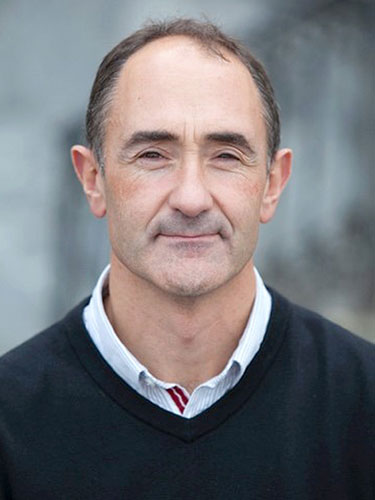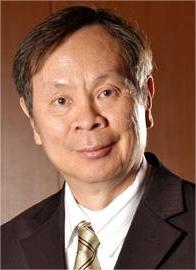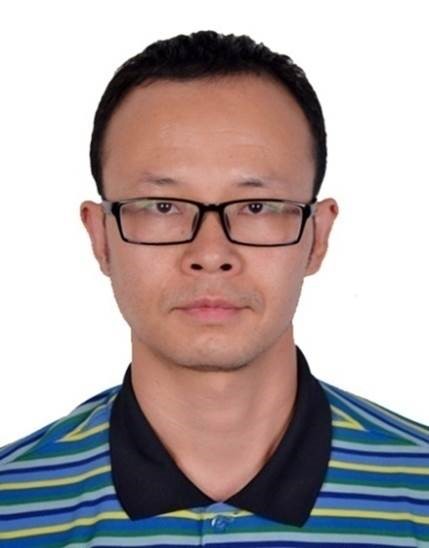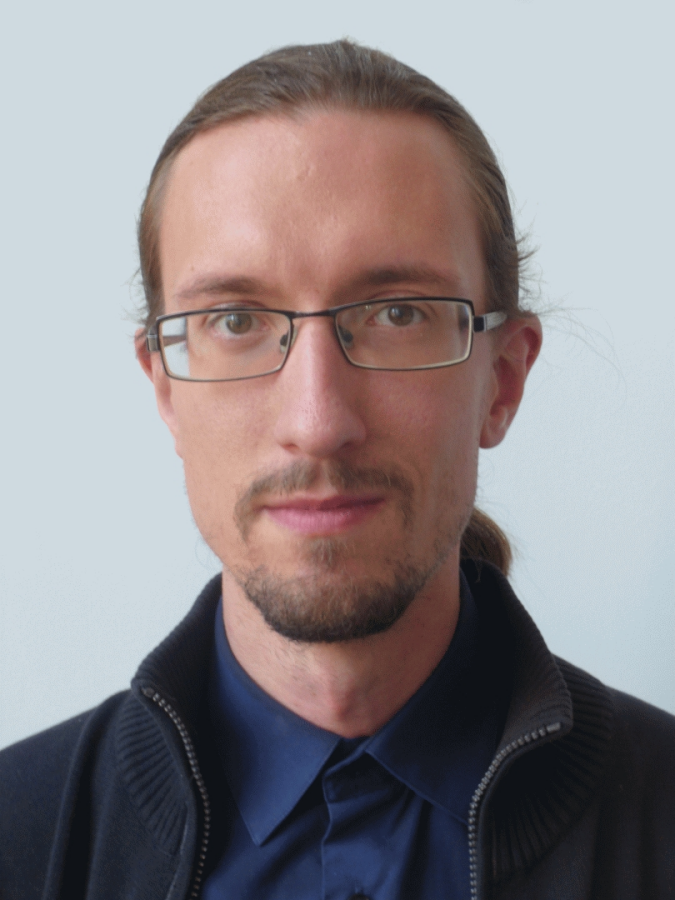Opening Ceremony

Luis M. Liz-Marzán
CIC biomaGUNE (BRTA), Spain
Fellow of the European Academy of Sciences
Fellow of the Royal Society of Chemistry
Fellow of the Optical Society of America
Biography: Luis M. Liz-Marzán is a PhD from the University of Santiago de Compostela and has been postdoc at the van't Hoff Laboratory (Utrecht University) and visiting professor at various institutions worldwide. After an extended academic career at the University of Vigo, in 2012 he joined the Basque Center for Cooperative Research in Biomaterials (CIC biomaGUNE), in San Sebastian, as Ikerbasque Research Professor and Scientific Director, a position he held until December 2021. Since 2015 he is also the PI of the CIC biomaGUNE node of the Biomedical Research Networking Center: Bioengineering, Biomaterials and Nanomedicine (Ciber-BBN) and since 2022 he holds a part-time Chair at the University of Vigo. Luis M. Liz-Marzán is recognized by his work on the application of colloid chemistry to the (nowadays crowded) field of nanoplasmonics. He has been one of the pioneers in the colloidal synthesis of metal nanoparticles, with relevant contributions toward the control over the morphology of such nanoparticles, as well as toward tailoring nanoparticle surface chemistry and self-assembly. Recent work by the group has focused on surface bioconjugation (e.g. with glycans and cross-linkable polymers) but also on drug delivery and understanding nanoparticle fate within living cells. The scope of the research in Liz-Marzán's group has not been limited to synthetic aspects, but had the ambition to perform morphological and optical characterization at the highest level, to apply theoretical methods to model particle growth and optical properties, and ultimately applying them to the design of applications, mainly related to ultrasensitive detection and early diagnosis of diseases. Liz-Marzán and co-workers have contributed to both the comprehension of the phenomenon of surface enhanced Raman scattering (SERS) and the design of substrates that improve the performance of SERS sensors toward the detection of disease biomarkers.
Personal Hompage: http://www.bionanoplasmonics.com/Luis.php

Professor, Department of Mechanical and Industrial Engineering, Concordia University
Fellow of the American Society of Mechanical Engineers
Fellow of the Canadian Society for Mechanical Engineering (CSME)
Fellow of the Engineering Institute of Canada
Biography: Dr. Suong Van Hoa has been working on composites materials and structures since 1979. He has worked on many aspects of composites, from analysis, design, to manufacturing and development of new materials and structures made of composites. He has been working with many companies and institutions from many countries. Dr. Hoa established the Concordia Center for Composites (CONCOM) since 1983 and it was accepted by the board of Governors of Concordia University since 1993. Dr. Hoa has been Director of CONCOM since 1993.
Dr. Hoa was given the title of Concordia University Research Fellow in 2006. He was appointed Concordia University Research Chair in Materials and Composites since 2001. He has been Natural Science and Engineering Research Council (NSERC) Industrial Chair in Automated Composites Manufacturing since 2012. This NSERC chair is supported by Bombardier Aerospace, Bell Helicopter Textron Canada Ltd., Emergia Aerospace, Composites Atlantic and Delastek Ltd. Dr. Hoa is Fellow of the American Society of Mechanical Engineers, Fellow of the Canadian Society for Mechanical Engineering (CSME), Fellow of the Engineering Institute of Canada.
Dr. Hoa received The Ralph R. Teetor award from the Society of Automotive Engineers in 1980. He received the G.H. Duggan medal from CSME in 1996, the NSERC Synergy award in 2006, the ADRIQ (Association des Directeurs de Recherche Industrielle du Quebec) in 2006 and 2009, the Pratt and Whitney Research fellow in 2008, the Nano Academia from Nanoqubec in 2008, the American Society for Composites Destech award in 2011, and the Agora medal from the Palais des Congres of Montreal in 2011.
Personal Homepage: https://users.encs.concordia.ca/~hoasuon/
Keynote Speaker

Prof. Hongping Zhang
Chengdu University
Biography:
Hong Ping Zhang received his BS and PhD degrees from Southwest Jiaotong University (SWJTU). He conducted postdoctoral research at State Key Laboratory of Environmentally Friendly Energy Materials, Southwest University of Science and Technology and worked as an Associate Professor in the university in 2020–2022. He joined Institute for Advanced Study, and School of Mechanical Engineering at the Chengdu University (CDU) as a Professor in 2022. He has published more than 100 papers. His work has been cited over 3900 times, with an h-index of 31. He is a researcher in material science and engineering with research interests focusing on structure-process-property relation of (a) density functional theory calculation or molecular modeling for materials surface and interface interactions (b) nanomaterials reinforced composites and structures, particular for structural applications and (c) biomaterials, especially the novel osteoporostic bone repair materials or wound dressing.
Speech Title: Novel sponge like hydrogel for Diabetic Wound Regeneration
Abstract:
Diabetes has emerged as one of the major diseases that threatens public health and poses huge clinical challenges and financial burdens annually.[1, 2] This is a chronic complication that is characterized by extremely delayed wound healing that leads to bacterial infections.[3] An important factor that is responsible for this complication is the reduced antioxidant production in such patients. Thus, novel wound dressing are needed to be developed to meet the requirements. Here, I would like to introduce one novel hydrogel for diabetic wound regeneration. On the one side, hydrogels with soft and wet properties have been intensively investigated for chronic disease tissue repair. Nevertheless, tissue engineering hydrogels containing high water content are often simultaneously suffered from low porous size and low water-resistant capacities, leading to undesirable surgery outcomes. Here, a novel sponge-like macro-porous hydrogel (SM-hydrogel) with stable macro-porous structures and anti-swelling performances was developed via a facile, fast yet robust approach induced by Ti3C2 MXene additives. The MXene-induced SM-hydrogels (80% water content) with 200-300 μm open macropores, demonstrating ideal mass/nutrient infiltration capability at approximately a 20-fold higher water/blood-transport velocity over that of the nonporous hydrogels. Moreover, the highly strong interactions between MXene and polymer chains endow the SM-hydrogels with excellent anti-swelling capability, promising equilibrium SM-hydrogels with identical macro-porous structures and toughened mechanical performances. The SM-hydrogel with versatile functions such as facilitating mass transport, antibacterial (bacterial viability in SMPAAM below 25%) and reactive oxygen species (ROS) scavenging capacities (96% scavenging ratio at 120 min) synergistically promotes diabetic wound healing (compared with non-porous hydrogels the wound closure rate increased from 39% to 81% within 7 days).Therefore, the durable SM-hydrogels exhibited connective macro-porous structures and bears versatile functions induced by MXene, demonstrating its great potential for wound tissue engineering.
To be updated...
CoMSE Past Speakers


Dr. Matthias Bönisch Ph.D Pao Ter Teo
Department of Materials Faculty of Bioengineering and Technology
Engineering Belgium Universiti Malaysia Kelantan (UMK)
Belgium Malaysia
比利时材料工程系 马来西亚吉兰丹大学(UMK)生物工程与技术学院